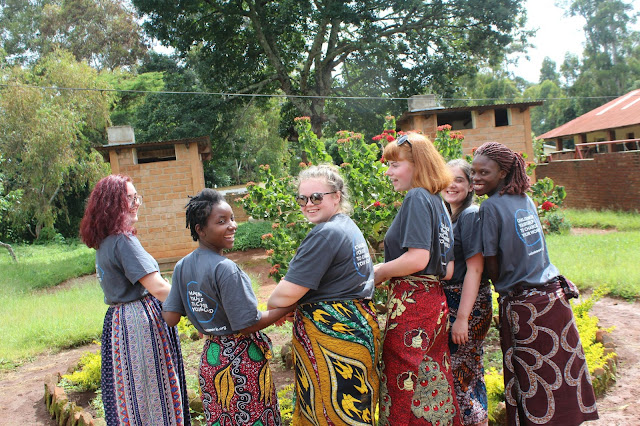By Honor Wilkinson-Bell
As a woman from the UK, International Women’s Day for me involves celebrating the efforts that have been made towards achieving equality, and raising awareness of the prevailing challenges for women in the UK today. In Malawi, however, there is less to be celebrated. Whilst women have achieved some level of equality with the introduction of various government policies designed to encourage representation and participation, there are still several problems, which leave many women unable to achieve their full potential.
Girls are particularly at risk of being isolated in many communities. Traditional attitudes, and a lack of education surrounding sexual health, have led to a high level of school drop outs, leaving many girls without access to education. According to MISC 2006, around 67% of women in Malawi are literate, compared with 77% of men. There is also a lack of role models within Malawian society, for example in Parliament, just 32 members, out of 193, are female. School environments can fail to be conducive for many girls, and a lack of accessibility to health facilities and support can leave girls vulnerable to teenage pregancy, STIs and child marriage.
I wanted to find out more about their personal experiences of these challenges, and if these estimations of life as a woman in Malawi are true. First of all, I asked my counterpart, Loyce, who fought to stay in education after she had her first child, aged 19. We also spent the day at a Girls Only Club in Golomoti, and had the opportunity to speak to one woman, Bertha*, 18, who had a 1 year old child, about the challenges they face and how they see the future.
Their opinions differ on the matter of opportunities for women in Malawi. Whilst Loyce feels there are many opportunities as a woman, many of the women at the Girls Only Club stated the employment openings for them were informal, and mainly involved manual labour. This is a worrying prospect, as it is an unsustainable form of income and many work in harmful environments, such as on tobacco farms. What’s more, many professional workplaces mostly employ men, and fail to represent women. According to Loyce, what prevents women being represented is that the jobs tend to be inaccessible to women. This is an issue which can be changed, provided girls are encouraged to stay in education and commit to their futures.
On education, there is a general consensus that it is extremely important to all girls that they receive adequate teaching, and are encouraged to stay in school. Women at the Girls Only Club explained that the barriers preventing many from accessing education include; poverty, which disproportionately affects women; the exhaustion faced by many children as they are forced to work out of school hours; the school environment failing to be conducive. Some of the girls at the club complained that their school failed to provide sufficient sanitation facilities for girls. Loyce eloquently stressed the importance of participation in schools as “Education is more like my life. With education I can do what I want, and won’t have to rely on a man”.
Despite the fact that community by-laws have been introduced to combat the exploitation of girls and women in Malawi, in some cases, these have not been followed. Women at the Girls Only Club suggested that these laws failed to protect many girls, and cultural practices (such as Girls Camps, where young girls are sent to learn about sexual health, but are actually sexually exploited by older men) still exist. There has, according to one member of the Girls Only Club, been some effort made by community leaders to ensure girls return to school after pregnancies, but the voices of women, particularly younger women and survivors, need to be heard more, in order to effect local legislative change.
For all the challenges here in Malawi, women and girls remain refreshingly positive about the future. Equipped with existing role models of their own, these young women want to take equality a step further. Loyce looks up to her late Mother, who was the first Radiographer in Malawi. She says it is up to everyone in society, especially women, to challenge cultural norms and act as role models for future generations. Women at the Girls Only Club want to achieve higher literacy rates and improve education for girls, as well as see more women working in offices, particularly as CEOs. For Bertha, her role model is a woman from her village, Linda*, who also went through a pregnancy during her teenage years, and is now a school teacher. Through the support of CYECE, Bertha has been encouraged to continue education and will return to school when her child is 3. Raising her child, with the support of her parents, is important in the here and now, but she hopes to become a nurse, and then go on to be a role model for other girls her age.
*Names have been changed.

Brilliant article Honor really interesting .
ReplyDeleteAbsolutely loved reading this! Keep up the good work!
ReplyDelete